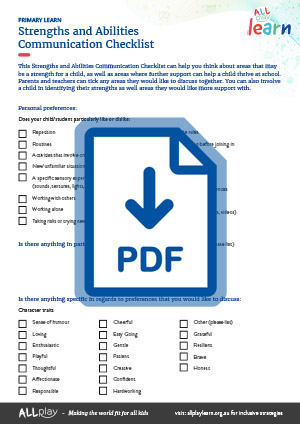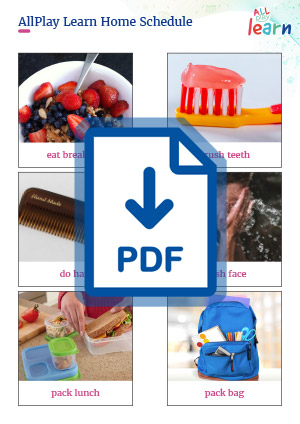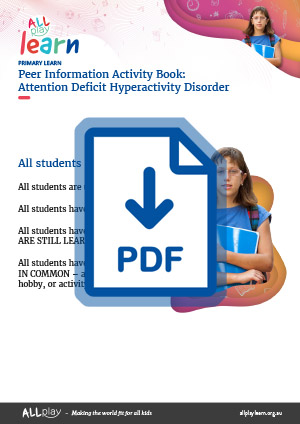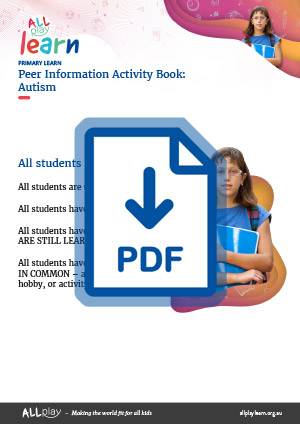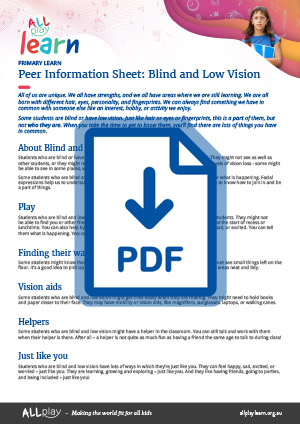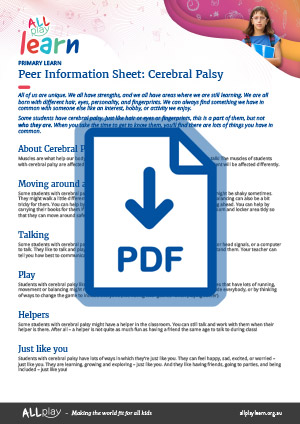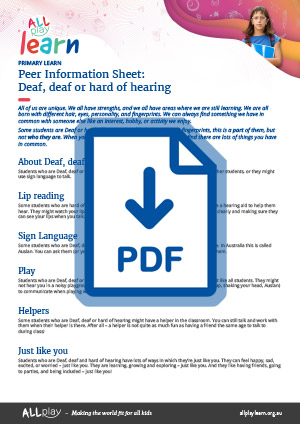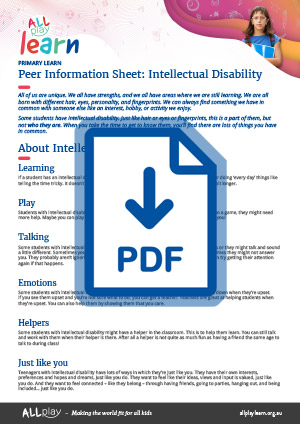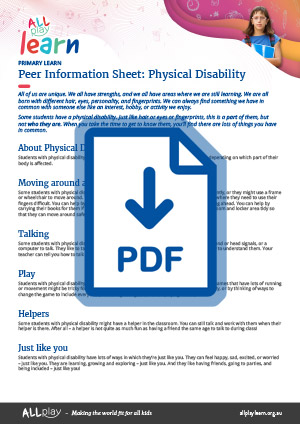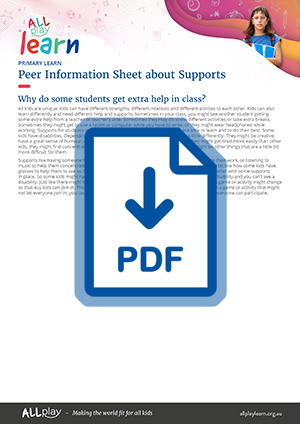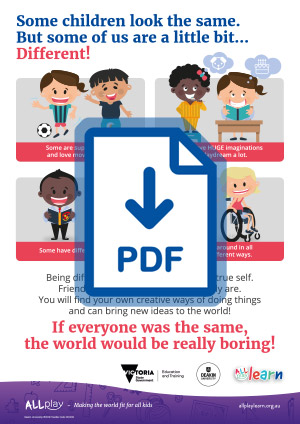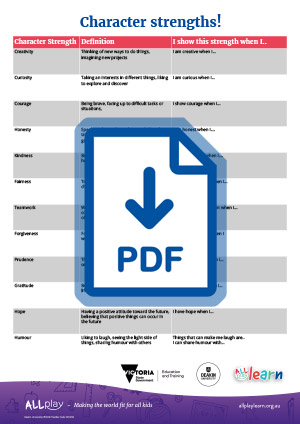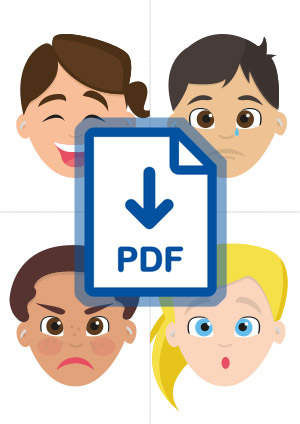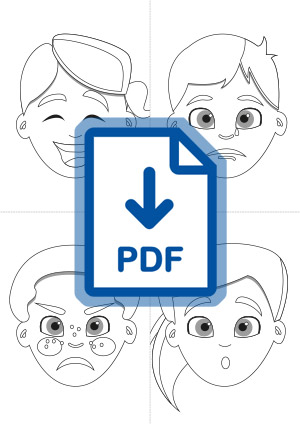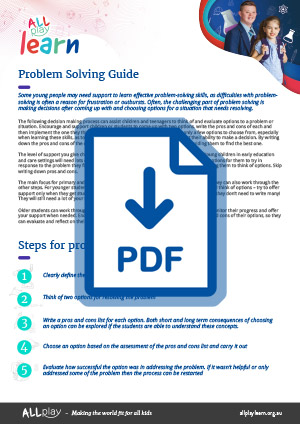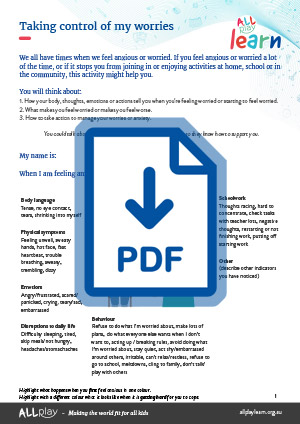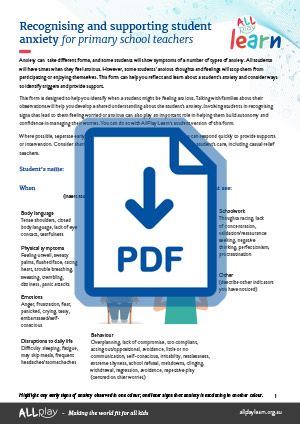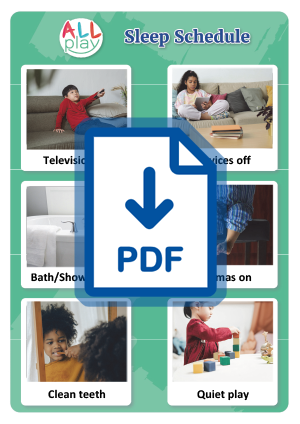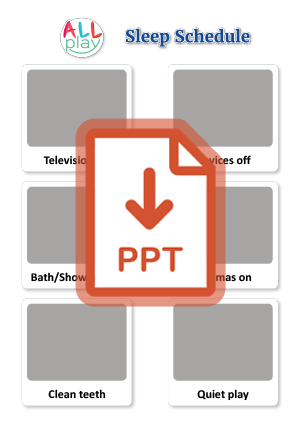
Parent
Resources
Welcome to our resources page!
Here you will find a range of posters, handouts and more to support the inclusion of children with disabilities and developmental challenges.

Stories
We provide a range of stories that help children learn about school so they know what to expect and can learn helpful ways to respond to new situations. Each story comes with audio so that children who are blind and low vision, or find reading challenging, can still access these stories. We have also provided these same stories without pictures so they can be customised with personal images or photos that are relevant to the child or children you will read it with.


Inclusion resources
You can access a home schedule so that children have visual prompts for what comes next when getting ready for school (or when they arrive home). We also provide a strengths and abilities communication checklist to facilitate communication between teachers and parents.

Disability information sheets
If planning to disclose your child’s diagnosis to their peers, download information sheets or activity books so peers can learn more about how they can be inclusive.

Supporting wellbeing
We provide resources to help children learn how to manage their emotions and problem solve. We also have posters celebrating the strengths of children and being different. You might also like to show your child the AllPlay Learn child page, where they can access information about seeking help.

Recognising and supporting anxiety
AllPlay Learn’s Recognising and supporting student anxiety forms help children (and teachers and families) to reflect on:
- a child’s early signs that they are feeling anxious
- later signs that their anxiety is escalating
- triggers or contributors to the child’s anxiety
- strategies that may be effective at specific timepoints.
Communication between schools and families about observations will help you develop a shared and richer understanding about your child’s anxiety. Involving your child in recognising and responding to signs of anxiety can increase their autonomy and confidence. Some children may complete these forms independently, while others may find working with a trusted teacher, family member or health professional (e.g. their psychologist) helpful.
These forms can be used to support collaboration and communication across teaching staff at your child’s school, which can help create consistent supportive environments that foster your child’s sense of security and capability in managing their anxiety.

Sleep resources
Research consistently identifies good sleep as essential for wellbeing. Sleep schedules can help children become familiar with bedtime routines and can reduce bedtime resistance. You can access an example of a sleep schedule below, with a template that enables you to add photos from your child's own environment.

